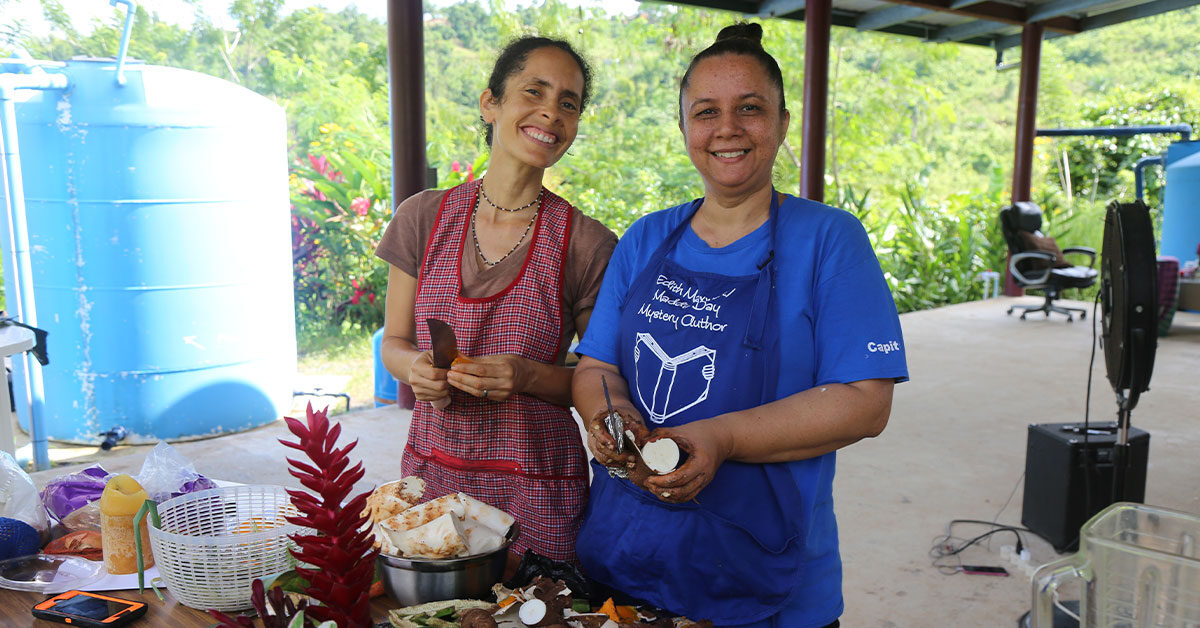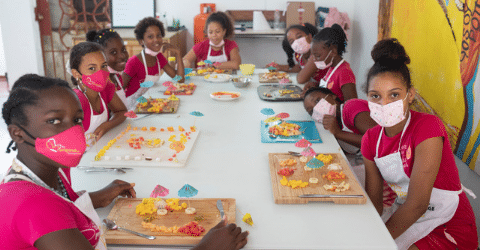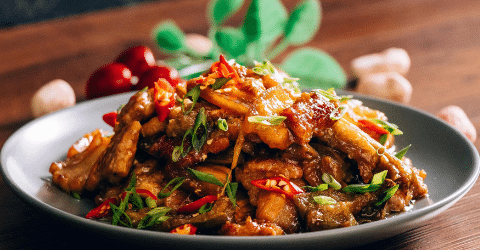
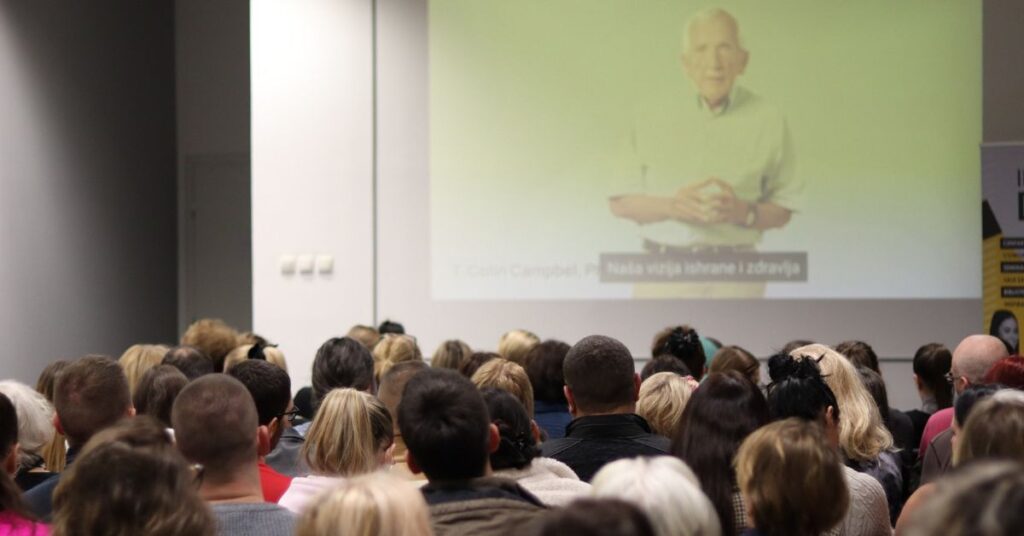
Since 2013, I have spent thousands of hours studying the science of nutrition, health, and the mind and putting my findings into practice. In 2017, I completed the T. Colin Campbell Center for Nutrition Studies (CNS) Plant-Based Nutrition Certificate program. Armed with the experiential and theoretical knowledge from the certificate and other research, I embarked on a journey of sharing this empowering knowledge with others; by 2020, I had held 50 in-person public lectures on plant-based nutrition throughout Southeast Europe. Then the pandemic came, and I had to stop. Once the pandemic was over, however, I drafted a plan for a project that would involve holding even more public lectures on plant-based nutrition. I applied for a CNS grant to fund the project.
The project is called “Biggest Secret: Health is in your hands” (translation: Najveća tajna: Zdravlje je u tvojim rukama). Our goal is to educate local communities and improve food literacy throughout Serbia. We do this through public lectures, addressing common misconceptions, myths, and doubts about health and whole food, plant-based (WFPB) nutrition. Our team (Dr. Jovana Masic, Dr. Dragana Mijailovic, and myself) aim to craft lectures that are always educational, practical, and inspiring.
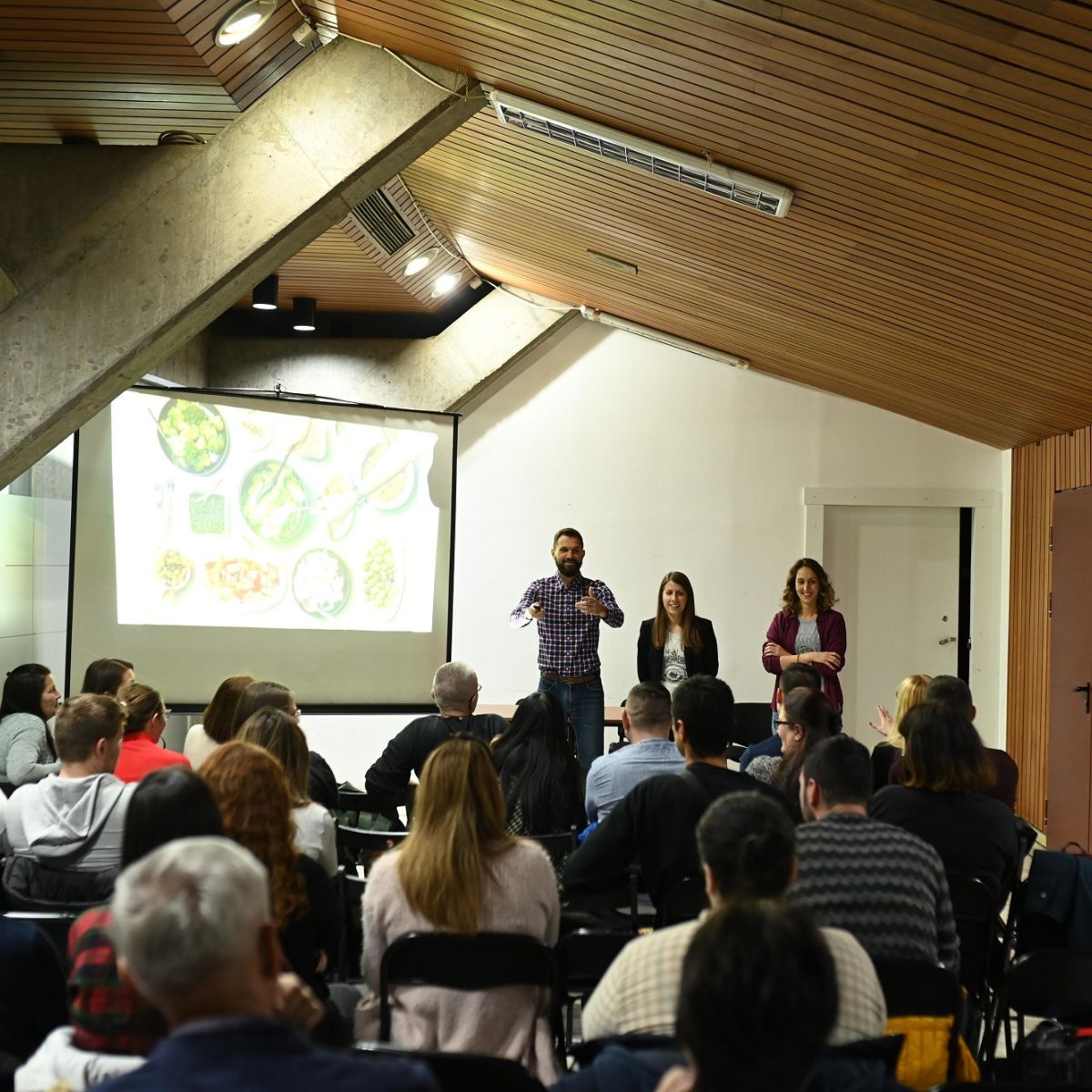
The dire need for this information:
- 61% of all the people who died in the year of 2021 in Serbia died from just three causes of death: heart disease, cancer, and lung disease;
- There are currently over 796,000 people in Serbia who have been diagnosed with diabetes; and
- The country has one of the highest rates of tobacco usage in the world with over 30% of the population using some form of tobacco.
The physical and psychological suffering caused by these diseases is everywhere. Members of our community suffer every day, as do their family and friends. The health care system’s answer is a combination of procedures and a lifetime of pills. Patients become stuck in a cycle of pain and pills . . . pain and pills, for the remainder of their lives, without ever fathoming that their health is in their hands or that chronic diseases can not only be prevented but, in many cases, even reversed.
We know that it does not have to be this way. We were not born to spend the last several decades of our lives living in pain, subscribing to pills, and being barely able to move; we were born to be healthy, happy, and awake. Our project aims to spread this empowering message, enabling people to live longer, healthier, and more peaceful lives.
There have been two roadblocks to spreading this information on health and nutrition. First, disease prevention and nutrition are barely taught in medical schools. Second, until recently, the only way for people to get any information about health or nutrition was through local health professionals in their cities, towns, or villages. With the support of the CNS grant and the wider adoption of technology that enables easier communication, such as the internet, we can now overcome these challenges. We have been able to share this life-saving and life-extending information with more people around the world.
Demand for the Project
Our first lecture was held in a large amphitheater in Novi Sad, the second-largest city in Serbia. The lecture was a fantastic success, setting up a strong foundation for the rest of the project. As we continued in different cities throughout Serbia, more people started praising and hearing about the project. As a result, people from all over Serbia, Croatia, Montenegro, and Bosnia and Herzegovina have been using social media to request lectures in their hometowns.
And that would have been incredible, but it wasn’t feasible this time around due to the legalities as well as time constraints, so the public lectures were held in cities throughout Serbia.
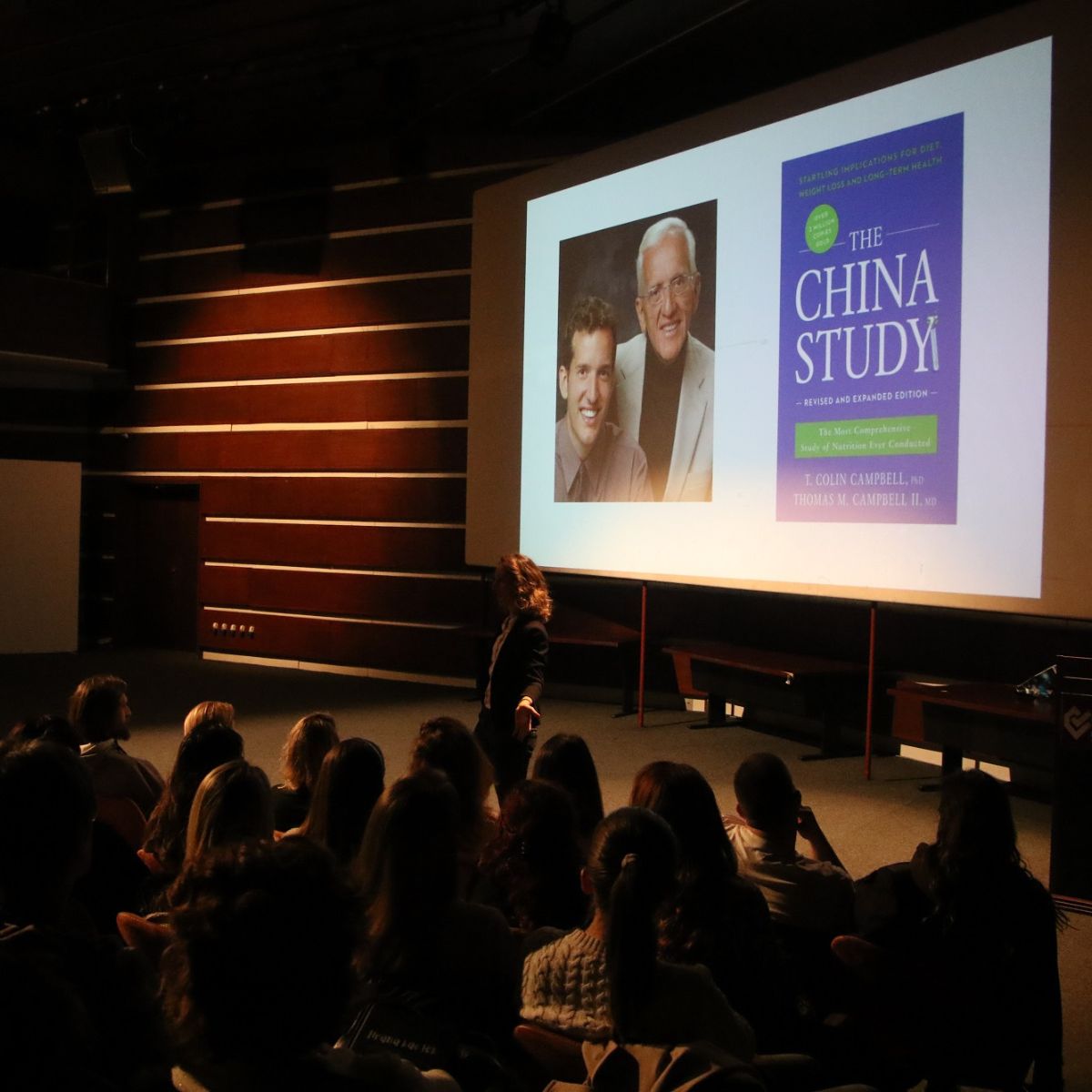
Results
Because the goal of the project is to make people more food literate, we have focused on gathering data on what people believe and how the lectures have been informative. Anonymous online surveys indicated the top challenges that people associate with switching to a WFPB diet:
- “It’s difficult for me to give up delicious foods,”
- “I don’t know enough about [the diet],” and
- “I don’t know how to cook this food.”
When asked afterward what they most liked about the lectures, the answers included:
- “how skillfully knowledge was transferred,”
- “the energy and the enthusiasm of the lecturers,”
- “the part with how to practically apply a [WFPB] diet in one’s daily life,”
- “the lecture was dynamic and kept my attention,”
- “even though I was vegan, I was not a very healthy one, so the whole lecture was inspiring and motivating,”
- “very clear and perfectly understandable presentation even for those who are not doctors,”
- “the fact that I did not feel [forcefully persuaded] by the lecturers, nor judgment towards people who are not on the same diet as them. Bravo!”
And when asked what kind of changes they were thinking of implementing after having attended a lecture:
- “everything, I wish to completely switch to a [WFPB] diet,”
- “for starters, to eliminate meat from my diet,”
- “to find tasty recipes, so that I could eat vegan meals more often throughout the week because I am currently vegetarian,”
- “to reduce the amount of oil that I consume,”
- “to completely eliminate dairy products,”
- “to start taking B12.”
To conclude, I hope that as a result of this project, thousands of people, including their family and friends, will feel more food literate; empowered about their health, diet, and lifestyle; and confident enough to practically implement more WFPB choices into their daily routines. I also hope that the medical students and practicing physicians who attended the lectures are inspired and even empowered to start sharing this information with their patients and others. I am grateful to CNS and its team for trusting and supporting this project.
Copyright 2025 Center for Nutrition Studies. All rights reserved.
Deepen Your Knowledge With Our
Plant-Based Nutrition
Certificate
Plant-Based Nutrition Certificate
- 23,000+ students
- 100% online, learn at your own pace
- No prerequisites
- Continuing education credits
